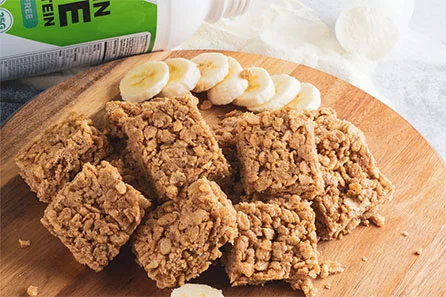It is no secret that water is essential to our survival. Every cell, tissue, and organ in our bodies need water to function properly. Water makes up approximately 60% of our body weight and plays a vital role in numerous bodily processes, including regulating our body temperature, lubricating our joints, aiding in digestion, and flushing out toxins.
Despite its importance, many of us do not drink enough water on a daily basis. In fact, according to a survey conducted by the Centers for Disease Control and Prevention (CDC), 3 in 10 Americans do not drink any water at all!
Make sure you drink enough water
The best way to ensure that you are getting enough water is to carry a reusable water bottle with you and take occasional sips throughout the day. You can also flavor your water with fruit or herbs to make it more palatable. And if plain water just isn’t your thing, there are plenty of other options to choose from, including sparkling water, seltzer, and unsweetened tea.
There are a variety of reasons why we may not be getting enough H2O, including not feeling thirsty, forgetting to drink, or simply not liking the taste of water. Whatever the reason, it is important to be aware of the consequences of dehydration and make a conscious effort to drink more water.
Dehydration can lead to a number of health problems, including fatigue, headaches, dizziness, and constipation. In severe cases, it can even lead to hospitalization.

Tips to help you out:
1. Make sure to drink water regularly throughout the day, even if you're not thirsty. 2. Drink extra water when it's hot outside or if you're exercising. 3. Carry a water bottle with you so you always have access to water. 4. Drink fruit juice and other beverages that contain water, in addition to plain water. 5. Avoid sugary drinks, alcohol, and caffeinated beverages, which can actually dehydrate you.
So how much water should you be drinking? The CDC recommends that adults drink 8 cups (64 ounces) of water per day. However, this is just a general guideline and your individual needs may vary depending on factors such as your activity level, the climate you live in, and whether you are pregnant or breastfeeding.
How to tell when you are dehydrated.
Your body is made up of mostly water. Every cell, tissue, and organ in your body needs water to work properly. Dehydration happens when you don’t have enough water in your body to keep things working normally. Even a small amount of dehydration can cause problems.
There are many different ways to tell if you’re dehydrated. You might feel:
- Thirsty
- Dizzy or lightheaded
- Weak.
- Confused
- Have a headache
- Have dry mouth, lips, or eyes
- Urinate less often than normal or have dark yellow urine
Dehydration can cause serious problems if not treated, so it’s important to know the signs and how to prevent it. Drink plenty of fluids, especially water, every day to prevent dehydration.
If you think you might be dehydrated, drink fluids right away. If you’re unable to drink enough fluids or if your body can’t keep fluids down, call your doctor. You might need to go to the hospital for fluids through an IV.
Limit your sugary drinks and alcohol.
Sugary drinks and alcohol can be extremely harmful to your health. Consuming too much sugar can lead to weight gain, insulin resistance, and type 2 diabetes. Alcohol can damage your liver, pancreas, and brain. It can also increase your risk of developing cancer. Therefore, it is important to avoid sugary drinks and alcohol. Instead, opt for water or unsweetened beverages. You should also limit your intake of sugary foods. Choose fruits, vegetables, and whole grains instead.
When it comes to your health, it is important to be mindful of what you put into your body. Sugary drinks and alcohol can have serious consequences on your health. If you are looking to maintain a healthy lifestyle, it is best to avoid these beverages and foods.
Staying hydrated while exercising.
Water is essential for the human body to function. Every system in the body depends on water to work properly, and that includes the muscles. When you exercise, your muscles need more water than usual to keep them working efficiently.
Dehydration can cause cramps, fatigue, and lightheadedness, all of which can make exercise much less enjoyable and effective. Staying properly hydrated will help you to exercise more safely and effectively.
So how much water should you drink before, during, and after exercise? The general rule is to drink before you feel thirsty, and to keep drinking throughout your workout. A good rule of thumb is to drink about 8 ounces of water 20 minutes before you exercise, and then drink 8 ounces for every 20 minutes of exercise. After your workout, be sure to drink another 8 ounces of water.
If you are exercising in a hot environment or for a long period of time, you may need to drink more water than usual. Signs of dehydration include thirst, dark urine, fatigue, and dizziness. If you experience any of these symptoms, be sure to stop exercising and drink more water.
So next time you hit the gym, don't forget to bring a water bottle with you and take regular sips throughout your workout! Staying properly hydrated will help you to exercise more effectively and enjoy your workout more.
Just remember, no matter what you choose to drink, water is always the best option for staying hydrated. So make a effort to drink up and stay healthy!










